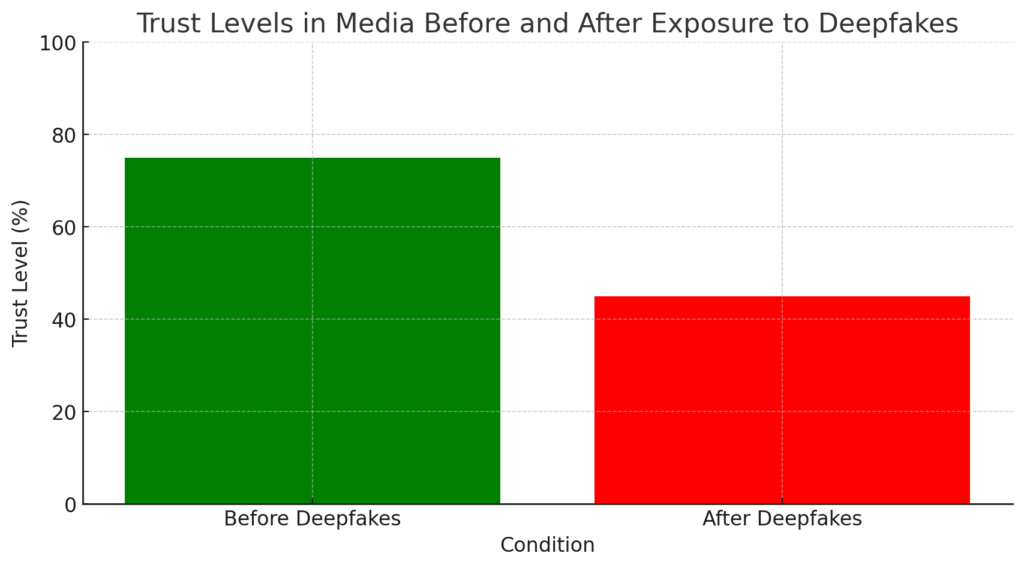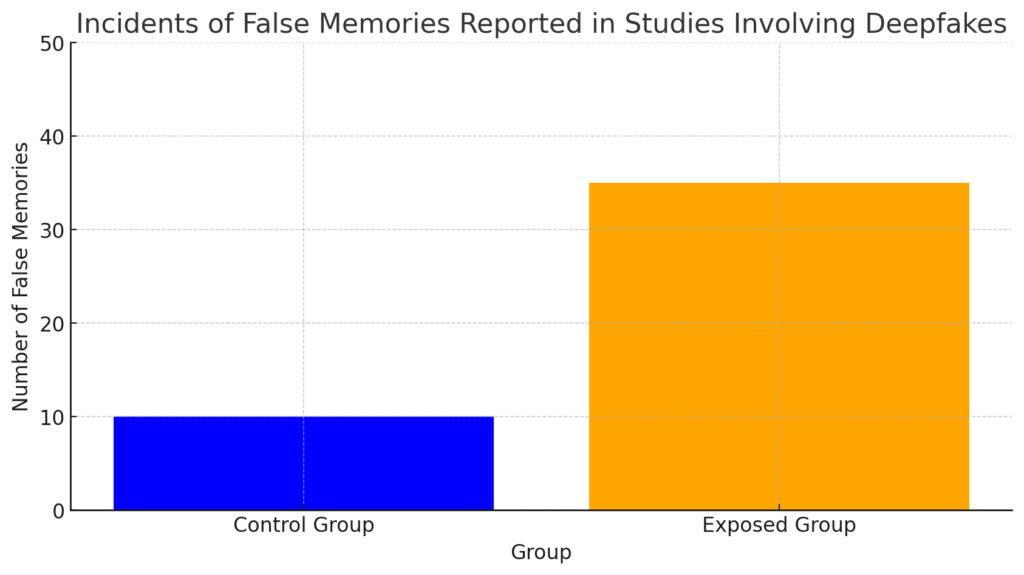Psychological Impact of Deepfake Technology on Society
Introduction
Psychological Effects of Deepfake Technology on Society, which leverages AI to produce highly realistic, altered videos and images, has rapidly gained prominence in the digital realm. Although this technology holds considerable promise for creative uses, it also presents significant ethical and psychological challenges. As deepfakes become more advanced, they increasingly blur the line between reality and fiction, potentially altering societal trust, memory, and behavior.
In this blog, we will delve into the psychological effects of deepfake technology on both individuals and communities, examining its impact on trust, memory, and mental health. Additionally, we will discuss the broader ethical considerations and propose strategies for mitigating the negative effects of this emerging technology.
Understanding Deepfakes
Deepfakes are AI-generated media that convincingly modify original content by altering faces, voices, and actions in videos and images. Initially gaining popularity for entertainment and satire, deepfakes have rapidly evolved into tools for spreading misinformation, committing identity theft, and other malicious activities.
The potential dangers of deepfakes are very real. From fabricated political speeches to non-consensual pornography, deepfakes have been weaponized to deceive and manipulate, resulting in tangible consequences.
The Erosion of Trust
Impact on Individual Trust
Trust is the cornerstone of human relationships and social interactions. Deepfakes erode this trust by creating uncertainty about what is genuine. When people cannot trust the authenticity of visual and auditory information, it leads to skepticism and paranoia. This erosion of trust can affect personal relationships, causing individuals to doubt the authenticity of digital interactions with loved ones, leading to increased anxiety and tension.
Impact on Societal Trust
On a larger scale, deepfakes have the potential to destabilize societal trust. In the political sphere, deepfakes can manipulate public opinion by creating false narratives about public figures or events. For instance, a deepfake of a politician making inflammatory statements could incite unrest or influence election outcomes. The mere possibility that a video could be a deepfake may lead to widespread distrust in media, undermining public confidence in institutions and journalism.
Memory Distortion and Manipulation
False Memories
Deepfakes can lead to the creation of false memories, where people recall events that never actually occurred. Repeated exposure to deepfakes can make individuals believe that manipulated events are real, resulting in distorted memories. This is particularly troubling when deepfakes are used to rewrite history or alter personal experiences, as people may incorporate these false memories into their perception of reality.
Impact on Historical Records
Deepfakes also threaten the integrity of historical records. As the technology advances, distinguishing between genuine and altered footage from the past may become increasingly difficult. This could lead to the rewriting of history, where deepfakes manipulate public perception of historical events, potentially altering our collective memory and understanding of the past.
Behavioral and Mental Health Implications
Anxiety and Paranoia
The spread of deepfakes can cause heightened anxiety and paranoia, especially among those who fear being targeted by such technology. Knowing that one’s likeness or voice can be easily manipulated to create compromising or damaging content can cause significant distress. This is particularly true for public figures, celebrities, and individuals in positions of power, who may become increasingly paranoid about the authenticity of media associated with them.
Identity and Self-Esteem Issues
For victims of non-consensual deepfake pornography, the psychological impact can be devastating. The violation of having one’s image manipulated into explicit content can lead to severe trauma, including depression, anxiety, and a loss of self-esteem. The persistent nature of online content means that victims may struggle to regain control over their digital identities, leading to long-term mental health challenges.


Ethical Considerations and Societal Response
Legal and Ethical Challenges
The ethical implications of deepfakes are extensive. As deepfakes blur the boundaries between reality and fiction, they raise significant questions about consent, privacy, and accountability. Current legal frameworks often struggle to address the challenges posed by deepfakes, prompting calls for stronger regulations and the development of AI detection tools to counter malicious use.
Public Awareness and Education
Raising public awareness and education is one of the most effective ways to combat the negative impacts of deepfakes. By teaching individuals how to identify deepfakes and understand their potential for manipulation, society can build resilience against this technology. Educational campaigns should emphasize critical thinking skills and digital literacy, empowering individuals to question the authenticity of the media they encounter.
Closing Thoughts:
Deepfake technology is a double-edged sword. While it offers creative opportunities, it also presents significant psychological and ethical challenges. The erosion of trust, the distortion of memory, and the potential harm to mental health are just a few of the profound impacts deepfakes can have on society. Moving forward, it is crucial to develop strategies to mitigate these effects, ensuring that deepfake technology is used responsibly and ethically.
Society must adapt to this new reality by promoting digital literacy, strengthening legal frameworks, and fostering public awareness. Only by doing so can we hope to preserve the integrity of our social fabric in the face of increasingly sophisticated digital manipulation.
If you Liked Reading our Blog Read More Blogs Here and Below is the Link to our WhatsApp channel Join it for the Latest Post Updates. (Read For WhatsApp Channel Privacy and Security Here).
UseFull Resources:
| Resources | Resources |
|---|---|
| Tooldar: Tooldar | Hemingway Editor: Hemingway Editor |
| Ilovepdf3: Ilovepdf3 | Grammarly: Grammarly |
| Adorepdf: Adorepdf | Coursera: Coursera |
| Custom Design Agency: Articon Design Agency | Udemy: Udemy |
| Google: Google | Khan Academy: Khan Academy |
| Yandex: Yandex | Wolfram Alpha: Wolfram Alpha |
| Baidu: Baidu | TED Talks: TED Talks |
| Medium: Medium | Skillshare: Skillshare |
| Quora: Quora | Canva: Canva |
| Duolingo: Duolingo | Figma: Figma |
| Nerdfitness: Nerdfitness | Trello: Trello |
| DeepL: DeepL | Notion: Notion |
| LinkedIn: LinkedIn | Asana: Asana |
| Stack Overflow: Stack Overflow | Mailchimp: Mailchimp |
| GitHub: GitHub | Zapier: Zapier |
Note : These Above Resources Are just for Educational and ease of use Purposes we neither Endorse them, they were working at the time of sharing.
.Disclaimer: The information presented in this blog is for educational and informational purposes only and should not be considered financial, Political, or cultural advice. All efforts have been made to ensure the accuracy of the content at the time of writing.
Think We Missed Something?
If you notice an error or have a suggestion, we encourage you to submit a correction. Help us keep our information up-to-date and reliable!











